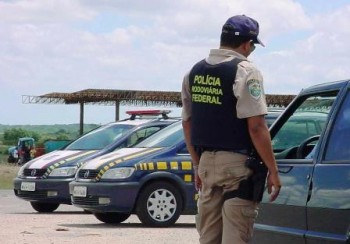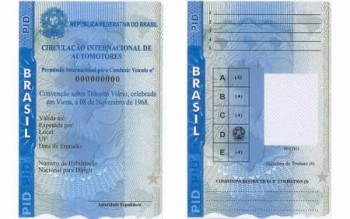
There is no rule that applies to all countries, but there are standards that are set by international agreements and conventions. They seek to standardize traffic laws to facilitate international road traffic and increase safety on the streets and roads. The most important treaty which has the most complete text is the International Convention on Road Traffic, complemented by the Vienna Convention on Road Signs. These treaties were signed by more than 130 States in Vienna, Austria in 1968 and came into effect in 1977. Additionally there are the conventions on traffic signed in 1923, 1943 and 1949, by 180 countries. However, not all signatories have ratified the treaties in their national laws. Also, when ratified, they are adopted taking into account the particularities of each country.
In general it is allowed to drive abroad in over 180 countries as a tourist for up to one year from the date of entry into its territory. People who go to another country to settle as resident, for work or any other reason other than tourism, most times will need the local license, because it is usually required to the resident to have this document.
7. The provisions of this Article shall not require Contracting Parties:
(a) To recognize the validity of domestic or international permits issued in the territory of another Contracting Party to persons who had their normal residence in their territories at the time of such issue or whose normal residence has been transferred to their territories since such issue; or
(b) To recognize the validity of permits as aforesaid issued to drivers whose normal residence at the time of such issue was not in the territory in which the permit was issued or who since such issue have transferred their residence to another territory.
Vienna Convention on Road Traffic (1968)
Depending on agreements between the country where the document was issued and the country where the driver intends to drive, there is the option of submitting the document in use and receive the equivalent issued by the local traffic department without doing tests. However, in other places it may be necessary to do these tests, but not necessarily the practical or road test.
If the national document is in accordance with the convention, you can drive with it. Despite that, an official translation from the consulate into the language of the country where you will drive is recommended. You can also choose the convenience of a document called International Driving Permit issued by the traffic departments, which standardizes the data of the national driving license in accordance with international requirements and is valid as an official translation of your local driver’s license.
International Driving Permit (IDP)
The International Driving Permit is not required by law in most countries, but by facilitating the verification of driver information, helps with the bureaucracy of the traffic agents and to avoid problems with misinformed police officers or those who wish to take advantage of their position. Does not require additional tests, is available by paying a fee and depending on the issuer may have the same expiration date of the national license.
IDPs must contain information in the five official United Nations languages: Arabic, Chinese, English, French and Russian. It may also contain translations in other languages such as German, Spanish, Italian, Portuguese, Swedish, or according to the issuer.

You should request the international permit before leaving the country of origin, since the document is only issued there. If you are outside, some issuers may send the document by mail.
When requesting your PID, beware of scams. There are many people out there offering false documents. The document must be issued by an institution recognized by the traffic department of your country.
The driver must carry along with the IDP, the original license. It does not replace the passport and therefore you should always have the three documents together.
In case of accident or traffic infraction, the authorities will require the driving license and if it is in an unknown language, may request an official translation of the document. This demand delays the release of the driver who may stand still until everything is verified.
Countries and territories where the International Driving Permit (IDP) is accepted:

Albania, Algeria, Angola, Anguilla (UK), Argentina, Archipelago of San Andres, Providencia and Santa Catalina (Colombia), Australia, Austria, Azerbaijan, Bahamas, Bahraini, Belarus, Belgium, Bermuda, Bolivia, Bosnia and Herzegovina, Bulgaria, Canada, Cape Verde, Ceuta and Melilla (Spain), Chile, Colombia, Congo, Costa Rica, Croatia, Cuba, Denmark, El Salvador, Ecuador, Estonia, Finland, France, Gabon, Ghana, Georgia, Germany, Gibraltar (Colony of Great Britain), Greece, Greenland (Denmark), Guadeloupe (France), Guatemala, Guyana, French Guiana (France), Guinea-Bissau, Haiti, Holland, Honduras, Hungary, Islands of Britain (Pitcairn, Cayman Islands, Malvinas / Falklands and Virgin), Islands of Australia (Cocos, Norfolk and Cook) Islands Finland (Aland) Islands, the British Crown (Channel, Georgia and South Sandwich) Islands, France (Wallis and Futuna), Indonesia, Iran, Israel, Italy, Ivory Coast, Kazakhstan, Kuwait, Latvia, Libya, Lithuania, Luxembourg, Macedonia, Martinique ( France), Morocco, Mayotte (France), Mexico, Moldova, Monaco, Mongolia, Montserrat (UK), Namibia, Nicaragua, Niger, Niue (New Zealand) Norway, New Caledonia (France), New Zealand, Nueva Sparta ( Venezuela), Panama, Pakistan, Paraguay, Peru, Philippines, French Polynesia (France), Poland, Puerto Rico, Portugal, United Kingdom (England, Northern Ireland, Scotland and Wales), Central African Republic, Czech Republic, Dominican Republic, Réunion (France), Russia, Romania, Western Sahara, Saint Pierre and Miquelon (France), San Marino, Saint Helena (UK), Sao Tome and Principe, Seychelles, Senegal, Serbia, Singapore, Slovakia, Slovenia, South Africa, South Korea, Spain, Svalbard (Norway), Sweden, Switzerland, Tajikistan, Tunisia, Southern and Antarctic Lands (British colony), British Indian Ocean Territory, Timor, Toquelau (New Zealand), Tunisia, Turks and Caicos Islands (British colony), Turkmenistan, Ukraine, United States, Uruguay, Uzbekistan, Venezuela and Zimbabwe.
Source: Sistema Renach Denatran – December 2010
References

